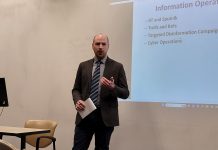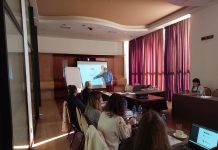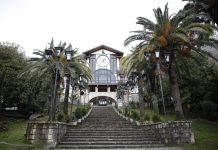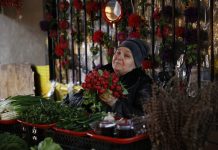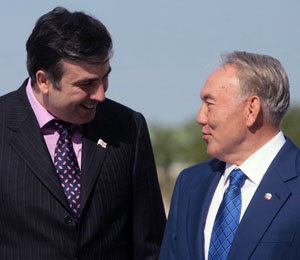
Georgia and Kazakhstan are proceeding with consolidating of economic relations and have set an objective to launch “close economic cooperation”.
This cooperation is developing particularly in the frames of energetic and transport projects and towards the development of tourism. Kazakhstan is announced one of the most significant trading partners of Georgia. Georgian-Kazakh cooperation is expected to be involved in small and medium-sized business more actively. “Extremely attractive sphere for business groups of Kazakhstan may become such areas as energetic and agricultural sectors,” – makes special mention Nikoloz Gilauri, prime-minister of Georgia during his call in Kazakhstan in spring, 2010.
Nowadays the main areas where Kazakh investments have been made are telecommunication and distributional networks, tourism in the region of Adjaria. The owner of distributing gas network of the capital of Georgia is AO “Kaztransgas-Tbilisi” – a company founded by AO “KazTransGas”, a part of NK group “KazMunaiGas”. Another subsidiary of “KazMunaiGas” – AO “KazTransOil” – has been running Batumi seaport since February, 2008. There are two banks with Kazakh capital – “BTA Bank” and “Halyk Bank Georgia”. Kazakh investors are fulfilling reconstruction of several hotels and etc.
Economic cooperation with Georgia in Kazakhstan was marked as one of the priority trends back in 2005. The first meeting of Kazakh-Georgian intergovernmental committee concerning the trading-economic cooperation with Georgia – the main body coordinating bilateral economic interaction – was held in Astana, on June 1st, 2006. In 2006 Kazakhstan became investor № 1 in Georgia (leaving behind Turkey and Great Britain) taking a firm stand in banking and resort-recreational spheres. If in the beginning of 2006 the Kazakh investments in Georgian economy made up to 300 million US dollars in total, at the end of the same year the investments increased up to 1 billion. The commodity turnover between two countries grew to 90% in 2006.
Since then the trading-economic relations have been characterized by the tendency towards growth. According to the results of 2010, the turnover between Georgia and Kazakhstan accounted for 139 million US dollars; it’s 641,2 thousand of US dollars (three times more than the rate of the previous year, 2009 (43 million and 714,2 thousand US dollars)). The import to Georgia has increased from 23 million 258,9 thousand to 91 million, 648,0 thousand US dollars; and export from Georgia – from 20 million 455,3 thousand to 47 million 993,2 thousand US dollars. Moreover, in 2010, Kazakhstan was in the top ten according to the volume of export for Georgia.
Georgia exports to Kazakhstan the following: products for metallurgical, machine-building, chemical and food industries as well as steel pipes, ferroalloy, electric welding, power transformers, tea, wine, tobacco and etc. Kazakhstan imports to Georgia the following: charcoal, tin plate, rental of ferrous and nonferrous metal, polypropylene, tires for cars and trucks, car accumulators, plumbing equipment, corn, flour and etc.
Georgia represents a promising market for delivery of Kazakh corn and its further transit in other countries. Recently more and more active discussion in connection with the world actual problems with corn is being held concerning the building of a large grain elevator in the Georgian seaport to store the corn, especially the Kazakh corn. This project isn’t new. A few years ago Georgian and Kazakh parties were even planning to realize this project jointly. However, the events of August 2008 hampered the process. On March 23rd of the current year Bakur Kvezereli, Minister of Agriculture of Georgia addressed the construction of terminal as “the vital objective”. He mentioned that the realization of the project would positively reflect on the food safety of the country and, besides, “Kazakh companies would receive the so-called trading ways in the Black Sea”.
On the whole geopolitical position of Georgia and Kazakhstan, located on the route, connecting Pacific and Asian region with Europe, stipulates their transit potential and represents tangible prerequisite for the successful participation in transnational energetic and transport projects. Several options of transportation of Kazakh oil to Europe through Georgia are being considered. Nowadays Kazakh oil is delivered to Georgia by railway tanks and then to the West by means of ferries. It is planned to connect this route with the new main line Baku-Akhalkalaki-Kars. It may well be so that Kazakhstan will join to the main line pipes passing through Georgia as well as to the prospective projects of such pipelines.
Nursultan Nazarbaev, President of Kazakhstan confirmed the intentions of the country to exceed the delivery of oil to Europe and diversification of these deliveries last autumn. “European union – is our main trading partner. Kazakhstan delivers 20% of oil consumed by EC, and in some countries – up to 30%. And this figure is bound to increase,” – mentioned Nazarbaev during his official visit to Belgium.
Some interesting facts about Kazakhstan
Nowadays Kazakhstan carries on stable economic development. In 2010, the economy of the country grew by 7% having overcome the aftereffects of the world financial crisis.
It is noteworthy that during the most difficult years GDP of Kazakhstan slackened the pace but still didn’t turn into “minus” (the growth of GDP comprised 8,5% before the crisis of 2007, in 2008 – 3,2%, in 2009 – 1,1%). This was due to large governmental investments of 14% from GDP as well as restoration of the world prices on raw materials. GDP per capita had exceeded 9 thousand US dollars by January 1st, 2011.
Enumerating the achievements of the country for 2010 in the annual message to Kazakh people, President Nursultan Nazarbaev mentioned the initiation of the realization of the Program of forced industrial-innovative development (PFIID) for 2010-2014.
“The main outcome of the first year of the first five-year plan– is the beginning of serious structural changes in economic growth at the expense of real sector of Economy,” – said the President. According to him, 152 enterprises were brought into operation, nearly 24 thousand of Kazakh people were provided with permanent work places and, on the whole, approximately 800 various manufactures were created in the country. The process of active restoration and development of chemical and light industries was launched. The breakthrough was noticed in the processing agricultural production. 294 investment projects on the total sum of 8,1 trillion tenge (1 USD = 146 KZT) are planned to fulfill until 2014. 161 thousand of permanent and 207 thousand workplaces throughout construction will be created.
Speaking about the aims of Strategic plan for the nearest decade, Nursultan Nazarbaev said that by 2020 the growth of GDP of Kazakhstan would have comprised no less than 30%. The growth in the processing spheres would exceed and achieve the level of extractive spheres. The assets of national fund will comprise no less than 30% of GDP. Domestic and foreign investments into non-raw material sector of economy would increase by no less than 30%. The share of small and medium business in GDP will comprise 40%. The population size will approach 18 million people. The portion of qualified specialists will be 40%. The level of unemployment will reduce by 5%. The productivity of labor in agriculture will increase twice by 2014, and four times by 2020. Among the tasks for the government is the approval of the Complex plan of energetic efficacy and the Program on the development of regions as well as programs towards the social modernization and the new program for provision of the full employment of population.
According to Nazarbaev, the size of pensions, scholarships, wages of public officials are being increased by 30%. The average size of pensions, salaries in the public organizations and scholarships will increase twice in comparison with 2008.
Together with this, said the President, Kazakhstan would continue the uncompromising struggle with corruption, having emphasized that for the last three years the country had improved the index in the world anticorruption rating Transparency International by 45 points.
It is unlikely that the stable economic development of Kazakhstan would be possible without political and social stability. For the whole 20-year history of Kazakhstan independence there were no mass conflicts on either national or religious ground (let’s not forget that the representatives of 140 ethnic groups and 46 confessions live there), and no social explosions as well. Those, as the events of the last period demonstrated us in the Arabic countries (Egypt, Tunis, Syria and etc.), often represent a trigger for revolutions. And revolutions, as the reality gives evidence, mostly entail nothing good.
The stable development of Kazakhstan has become the basis for the initiative group of politicians to address the CEC of Kazakhstan on December 27th, 2010 with the proposal to hold the referendum concerning the extension of the powers of Nazarbaev until December 6th, 2020 instead of regular elections of 2012. The group has gathered signatures of more than 5 million citizens in support of their initiative. The proposal was approved by the parliament of the republic of Kazakhstan. However, Nazarbaev declined this initiative and offered to present it for consideration to the Constitutional Council. The latter didn’t recognize it as relevant to the Constitution, after which the president declined referendum once and for all. However, taking into consideration the will of his people, President has decided to hold early presidential elections instead of referendum. The Constitution of the country allows such precedent. The elections are set on April, 3rd.
EC and USA have welcomed the decision concerning the presidential elections and expressed their hope that they will be fair and democratic.
And if Nursultan Nazarbaev wins again, on the whole, it will be very good for the country. As because we know, namely during this President, Kazakhstan declared its nuclear-free status and has chosen the way of market economy and democratic development and, namely, under Nazarbaev the level of well-being of Kazakhstan has grown by several times, and the population – by 1,5 million people. The stable development of the country is defined to a large extent by the personal qualities of Nazarbaev. And this represents the greatest interest not only for Kazakh people but for EC, USA, Caucasus and Central Asia, and particularly for Georgia.
David Gelashvili, for newcaucasus.com
Foto daylife.com

